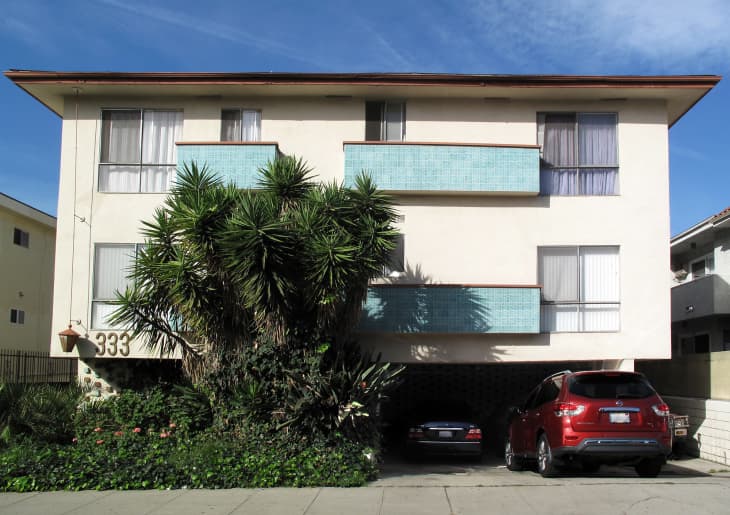What I Learned Hunting for an LA Apartment While Living in the Midwest

After three months of obsessively checking Zillow notifications from our childhood bedrooms in Iowa, my now-roommate Sarah and I worked up the courage to sign a lease on an apartment in Los Angeles — a city more than 1,800 miles away.
Finding a place that ticks all of the boxes — especially as a barely established 20-something — is a daunting and exciting process. It normally marks a new life chapter (exciting), and it always comes with doses of emotional and financial stress (daunting). Still, with the newfound flexibility of remote work, moving across the country to try out a new city seemed like a great idea. But on top of the usual concerns one has when packing up their life, Sarah and I had to be extra cautious of getting catfished.
“As a company, we do encourage for somebody to actually fly out or actually see the place before signing a contract, because it is a legally binding document,” says Denise Mendoza, broker and CEO at ROOF LA. “The most important thing is just kind of doing [your] own due diligence before really making that big decision.”
Because we weren’t able to physically explore any neighborhoods, Sarah and I were prepared to do our research — which quickly became mentally draining. Apartment hunting turned into a part-time job. I committed hours to learning about different neighborhoods, looking for deals and trying (and mostly failing) to understand the city’s parking situation. I’d only visited LA twice before deciding to move there, so figuring out where to begin was one of the hardest parts. It felt like all I could do was read articles, watch TikToks, and leave the rest up to fate.
Location and affordability became our priorities, and we focused on places that had at least one parking spot, a balcony, and on-site laundry. Once we found some options, we ranked them and made a list with their pros and cons.
Mendoza calls these priorities “make or breaks.” After making sure you qualify for an apartment, she stresses that the next most important step in narrowing your search is knowing exactly what you want. She also recommends basing these qualities off your lifestyle outside of work.
“In Los Angeles, we really try to invest in the culture that this city brings, which there’s so much,” Mendoza says. “From the Hollywood style to outdoors, you have options. So that’s one of the things we try to hone in on and make sure [tenants] focus on that.”
For a few weeks, Sarah and I requested information from multiple rentals, usually via websites like Zillow and Trulia. Before submitting applications, we’d ask for a video walkthrough (which companies usually had on their website or YouTube) and a floor plan. We also went through a list of questions with leasing agents, making sure to find out what utilities were included, how rent is paid, how many units were in a building, and more.
We were weary of officially applying to too many places because of the application fees (usually around $40). Even though we got accepted by three apartments before our current one, we ultimately pulled out because of negative feelings. This, of course, led to burnout. It seemed like each time we moved on, we had to start over. But just when we thought we wouldn’t ever find anything, I got an email with the listing.
If there’s one tangible thing I wish I’d known before — other than the emotional toll and time commitment — it would be how to quickly pick up on red flags from leasing companies.
“Call them and see how consistent they are as far as communication goes,” Mendoza suggests. “I would highly suggest doing a Zoom or video call if you’re dealing with a particular person to put the name to the face. And you have the internet, so Google Reviews, Facebook, the quality of their website — any way you can research them.”
Our current apartment isn’t perfect — the floors are uneven, the walls are thin, and I have to do a six-point turn every time I park in the garage. But because we knew what we wanted and were as thorough as possible before signing, these imperfections aren’t more than minor inconveniences.
My main piece of advice? Trust your gut. If you do appropriate research, communicate and don’t rush into anything, you’ll form an instinct on if a place is right for you. Listen to that feeling, and allow yourself to take the jump.